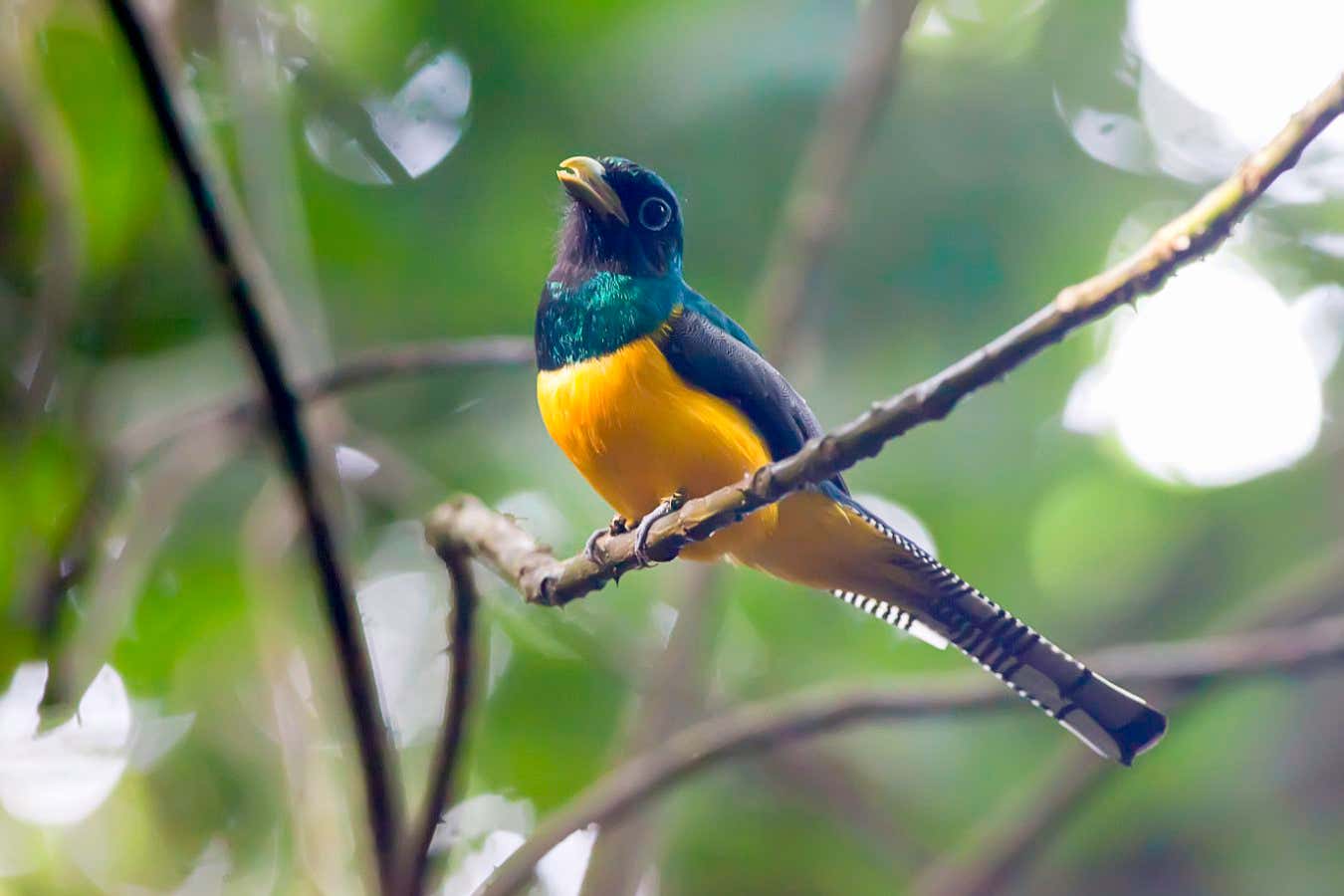
The Amazonian black-throated trogon is in sharp decline
LuismiX/Getty Images
In tropical regions such as the Amazon and Panama, the populations of some birds have fallen by as much as 90 per cent even in mostly untouched rainforests. Now, research has found that more intense heat extremes are likely to be the main factor behind these declines.
Between 1950 and 2020, the intensification of heat extremes led to a fall of between 25 and 38 per cent in the abundance of land-dwelling birds in the tropics, according to a new study by Maximilian Kotz at the Barcelona Supercomputing Center and his colleagues.
The team hasn’t yet used these results to try to project what will happen as the planet continues to heat up, but the outlook is clearly alarming. “It’s not a good-looking picture,” says Kotz.
He and colleagues started with data on land-dwelling bird populations around the world from the Living Planet Database. The study didn’t include water birds or seabirds. They then got data on habitat destruction from the Hyde Database of the Global Environment and historical weather and climate data from the European Centre for Medium-range Weather Forecasts.
The researchers compared all this data to find correlations that might explain the observed changes in bird abundance. In the mid-latitudes between 21° and 43° north or south, habitat destruction was the main factor driving declines, their findings suggest, in line with other studies.
But in the tropics, heat extremes were the biggest factor. In these regions, birds are often living near the limits of their heat tolerance and die if those limits are exceeded, says Kotz. Even if they survive extreme heat events, their poorer condition reduces their chances of breeding.
Next, the team investigated the extent to which the intensification in heat extremes is due to human-caused global warming, and thus how bird populations would have fared in the absence of warming. This allowed the researchers to estimate the decline in bird abundance that is attributable to climate change.
Attribution studies like this have long been used to assess the extent to which extreme weather events are due to climate change, but Kotz says that, as far as he knows, this study is the first to use them to look at ecological impacts in this way.
There are big gaps in the data on bird abundance, particularly in the tropics, Kotz acknowledges, but he thinks it is sufficient to draw conclusions. If anything, the lack of data in the tropics would lead to an underestimate of the impacts, he says.
Insect and ecosystems expedition safari: Sri Lanka
Journey into the richly biodiverse heart of Sri Lanka on this unique entomology and ecosystems-focused expedition.
Topics:
Source link : https://www.newscientist.com/article/2491790-extreme-heat-is-driving-dramatic-declines-in-tropical-birds/?utm_campaign=RSS%7CNSNS&utm_source=NSNS&utm_medium=RSS&utm_content=home
Author :
Publish date : 2025-08-11 16:00:00
Copyright for syndicated content belongs to the linked Source.